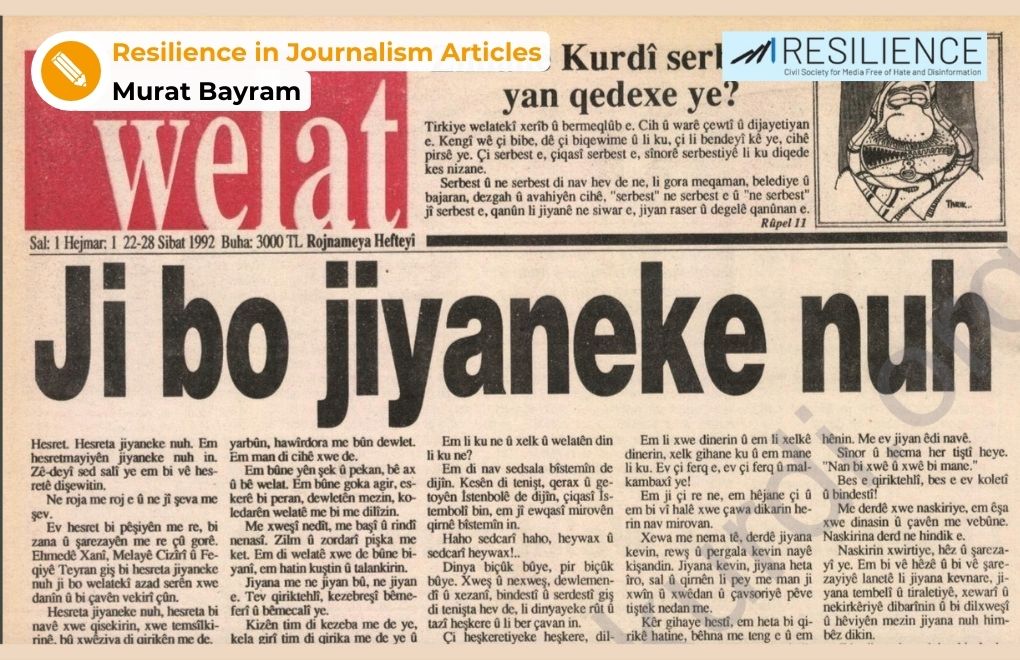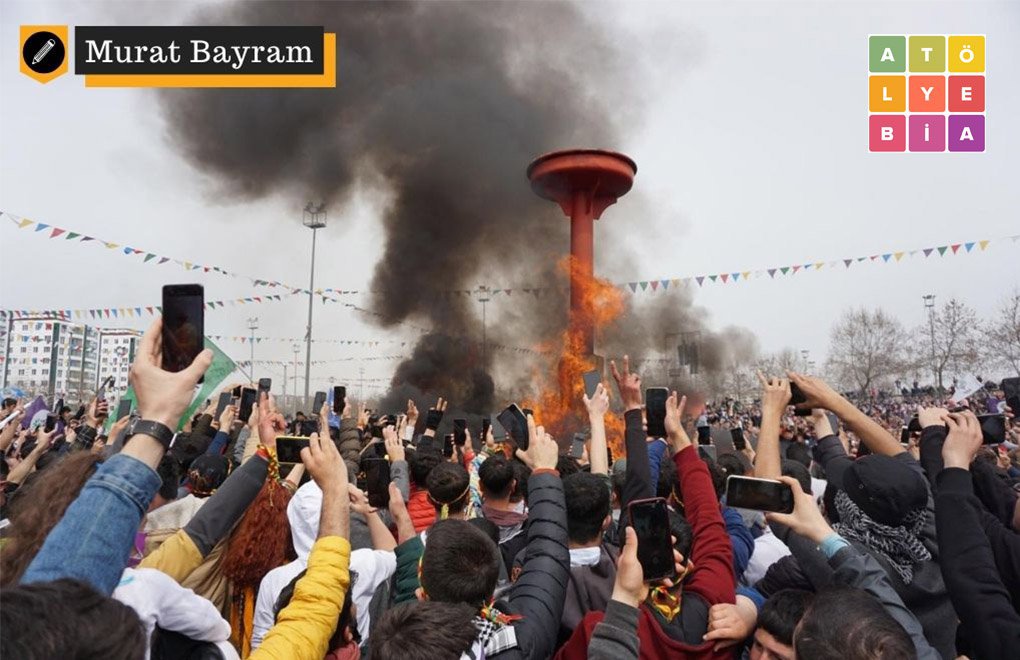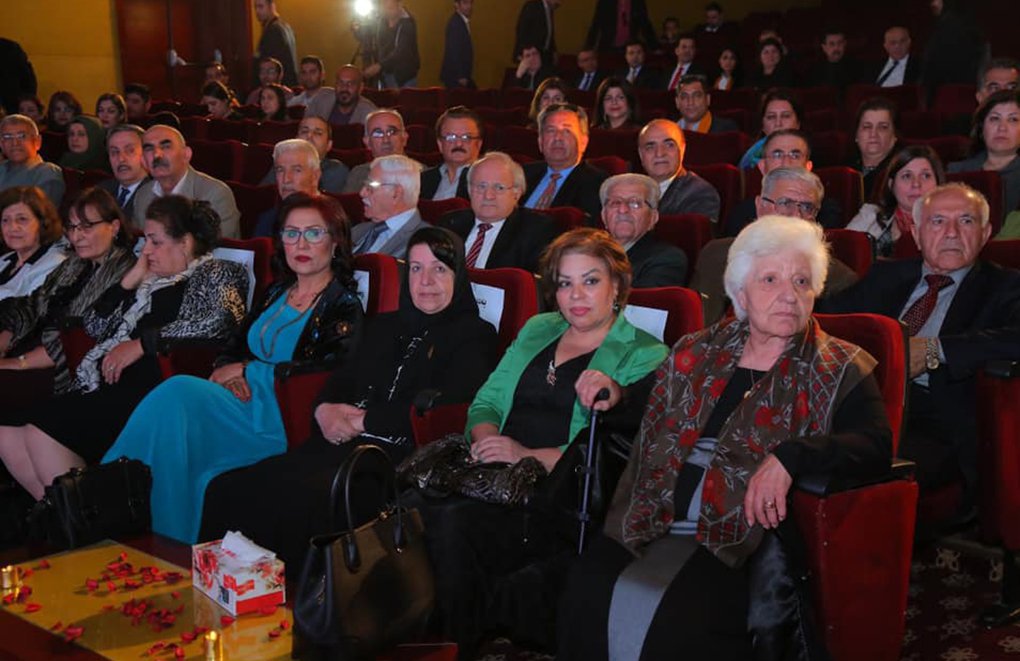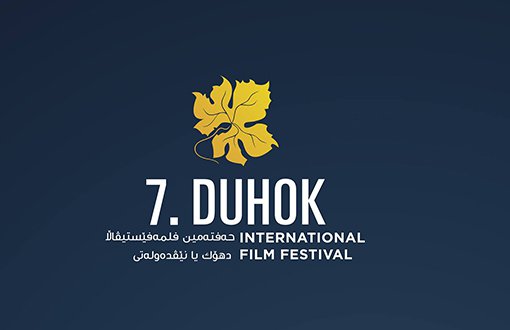* Photographs: Murat Bayram / bianet
Click to read the article in Turkish
As artist Harun Elkî said, "There is a highly distinguished artist from Europe among us today: Nadia Visser! Would you like to sing a song for us on the stage?", she walked towards the stage.
I am familiar with her voice from her clips on social media and YouTube. Nadia Visser first sang a song in Kurmanji, then another song in Zazaki.
As she was about to leave the stage, I told her I would like to interview her. The day after, we met with Nadia on a cloudy İstanbul day. Knowing that she has not yet released any albums though her videos are widely watched, we started by asking Visser if she is preparing to release an album.
Album in Kurdish
"I am very excited about it. Yes, we are working on an album. We have started to record and work on some songs. But, I don't think it will be ready anytime soon.
Like when?
"In the first months of 2020.
Can you give us some details about the album? Will it mostly consist of Zazaki songs? Or will there also be songs in Dutch or English?

"I have composed and sung five songs in Zazaki for this album. There will also be one Zazaki, one Kurmanji and one Sorani anonymous song in the album. I also sing Dutch and English songs at concerts.
"Millions of people are making music in English, they are singing songs in English. Adding one more person does not mean much. However, I find it very meaningful to sing in Zazaki. The ones speaking that language are having a harder life, the opportunities created by the language are far more restricted. The works on this issue are more limited.
'Zazaki is more meaningful'
In one of your interviews, you told that while you cannot even imagine having any problems with singing a song in you mother tongue Dutch, you were shocked when you see that it is the case for Zazaki. Do you refer to this when you say 'meaningful'?
Tew Veyvikê song in Zazaki sung by Nadia Visser
"In fact, the lives of the ones speaking that language are generally difficult. For instance, when we went to Dersim, there were checkpoints and soldiers at every corner. They intercepted and controlled us.
"At one time, a friend of ours left the identity card at home. Our artist friends said, 'Let's pass through the checkpoint singing, they will be more understanding when they see that we are artists.' At one checkpoint, it was my turn. When we approached the checkpoint and were about to sing our song, they stopped me, saying, "What are you doing, Nadia!' I didn't understand the problem. 'If you sing in Zazaki, they will stop us even though they don't have the intention. We will have problems', they told me. When I asked them what I was supposed to do, they said, 'Sing something in Turkish.' I sang a song in Turkish while passing through the checkpoint.
Referring to Zazaki in your speech, you call it both a language and a dialect of Kurdish. You don't have to answer my question if you don't want to, but I am curious. You know that there is such a debate over Zazaki. How do you define it: As a language or as a dialect of Kurdish?

(Smiling...) "No, I especially would like to answer this question, because I confront this question very often. Firstly, I am not in a position to make a judgement on this issue. It is a completely socio-political issue. There are some European languages that are recognized as different languages despite being very similar to each other. I am neither a linguist, nor do I have the right to make a decision.
"Secondly, we have bigger problems than that. This language or dialect should be learnt, it should be taught. There should also be works in Kurmanji and Sorani. They should be produced. In order to escape from this situation, I usually just say Zazaki, Kurmanji or Sorani. I try not to say a language or dialect. That Zazaki is a dialect of Kurdish or a language in its own right doesn't affect my singing in Zazaki.
'My stance has changed'
You said 'our problems'! You sang songs in Zazaki and Kurmanji and, lastly, you married a Kurdish artist (Alan Ciwan, a famous Kurdish theater artist). Now, you sympathize with Kurds. What has changed for you after coming into contact with Kurds and their life?
Song Yare in Kurdish sung by Nadia Visser
"Everything has changed. My stance towards life has changed. My perspective has changed. I am 22 years old. When I first went to Dersim, I was 16. At that time, the problems in life were typical problems in the Netherlands and I was overestimating them. For instance, getting a couple of marks less was a huge problem for me. When I lived with Kurds, I saw their tough stance towards life. I think I have become a more serious girl. Stronger in the face of problems... Marriage is going very well. Being from different cultures has more advantages than its disadvantages.
If I am not mistaken, you have a different occupation in Germany. Do see you being a singer as your profession?

"I am doing my job as a singing artist professionally. But, I do not earn my living from this profession. I am working on an educational project.
"In fact, earning a living from another profession has advantages for me. I can be more selective. If I earned a living as a singer, I would have to accept the places and concerts where I don't want to take the stage. Now, I only take the stage at places that I really internalize.
How did you first start making music?

(Laughing excitedly...) "Actually, I have been in music for as long as I have known myself. When I was a child - I think, I was 8 years old - I write my name on a piece of paper, signed it and gave it to my teacher as a gift. My teacher asked me about its meaning. 'One day, I will be a very famous singer and my signature will increase in value. You can sell it and make money", I told my teacher. In other words, it was my childhood dream. (MB/AS/SD)








.jpg)

